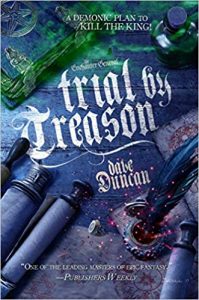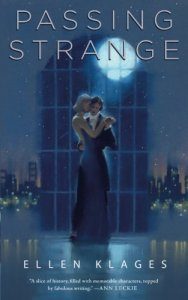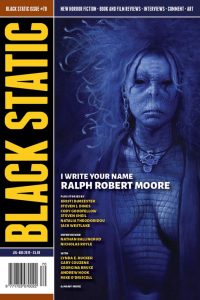Tom Whitmore Reviews Trial by Treason by Dave Duncan
 Trial by Treason, Dave Duncan (Night Shade Books 978-1-59780-954-2, $24.99, 285 pp, hc) October 2018. Cover by Steven Youll.
Trial by Treason, Dave Duncan (Night Shade Books 978-1-59780-954-2, $24.99, 285 pp, hc) October 2018. Cover by Steven Youll.
Trial by Treason is the second in a series of historical fantasy novels. Duncan, who died last year, was a steady, reliable writer: his stories filled a comfortable niche, and this book is no exception. He completed the third volume, Merlin Redux, before his death, and it’s expected this fall.
Like some of the best historical mysteries (think Brother Cadfael by Ellis Peters), this is a stand-alone novel: it’s easy to read without having read the first book. I know this because I did – and it’s a pleasant and engaging volume. Durwin, having just been made a licensed sage, is taken away from his abbey school by King Henry’s man Sir Neil d’Arielle, a young and somewhat hot-headed knight. Accompanied by Durwin’s cantor and friend Eadig, they set out to find out whether there actually is a plot of treason in Lincoln. There is, a literally diabolical one, and soon it is very hard for Durwin to be sure whom he can trust. Twelfth-century England may never be safe again.
The magic system involves incantations, with power depending on the number of singers involved. Magic has fallen out of fashion because earlier magicians put spoilers in their spells: extra words or misphrasings that prevent the spell from working. Combined with a deep belief in the authority of what is written down, this makes most spells ineffective, but Durwin has figured out this ruse, and can regularly manage to recover the proper words for the spells. He even manages to create a few new spells on the run.
Durwin is a bit too much of a Mary-Sue character. He often finds himself winning out because the author is on his side, and he seldom suffers real setbacks. Some of the historical characters are much more interesting – Nicholaa de la Haye is a particularly wonderful person I really wanted to see more of. Most of the characters do not think in a 20th-century manner, which can be frustrating – Durwin is more modern than anyone else, which makes him easier to identify with but much less believable. The book comes out as enjoyable and fairly fast-paced – a draught-horse performance, steady and reliable. If you’re seeking something new and exciting, look elsewhere. If you want a good weekend escape, you can find it here.
This review and more like it in the February 2019 issue of Locus.
 While you are here, please take a moment to support Locus with a one-time or recurring donation. We rely on reader donations to keep the magazine and site going, and would like to keep the site paywall free, but WE NEED YOUR FINANCIAL SUPPORT to continue quality coverage of the science fiction and fantasy field.
While you are here, please take a moment to support Locus with a one-time or recurring donation. We rely on reader donations to keep the magazine and site going, and would like to keep the site paywall free, but WE NEED YOUR FINANCIAL SUPPORT to continue quality coverage of the science fiction and fantasy field.







